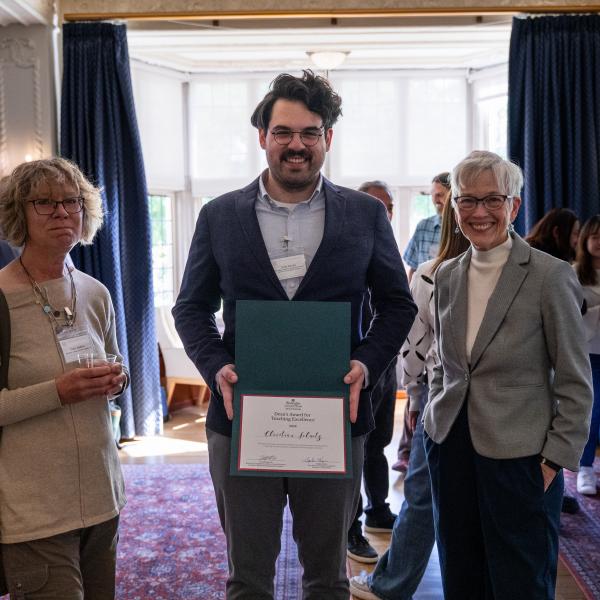
The pandemic has exacerbated an already growing mental health crisis in the United States, one that Juliette McClendon, PhD ’18, thinks can be alleviated in part through algorithms. McClendon is the director of medical affairs at Big Health, a company that offers digital therapeutics that help people suffering from poor sleep, anxiety, and worry.
In 2020, many mental health clinics moved to virtual office visits because of the pandemic. Going to therapy now required having access to a stable internet connection and privacy for extended virtual therapy sessions. For many people experiencing poverty, McClendon notes, these new hurdles only added to the long list of impediments to receiving care.
“We have a shortage of mental health providers in the United States,” she said. “In addition, many people of color, LGBTQ individuals, and individuals from other marginalized groups often experience micro-aggressions in health care settings.”
McClendon is helping to further software that can be a scalable solution for improving access to mental health care for people who have experienced hurdles to care in the past. Big Health’s apps like Sleepio, which helps people struggling with insomnia, and Daylight, an app for anxiety sufferers, are less resource-intensive and do not require as much privacy or internet bandwidth.
“Our biases can enter software that we create, leading to the software scaling up harmful ideas about race, equality, and gender.”
At Washington University, McClendon researched the relationship between mental health and racial equity, a passion that lead later led her to work with veterans of color at Veteran Affairs. She was the lead on a pilot study to evaluate responses to stress and trauma in a group setting which kicked off just before the pandemic arrived in the United States.
“We wanted to help veterans of color manage their reactions to racism in a way that allows them to feel empowered while also reducing the negative impact of racism and discrimination on their health,” McClendon said. “We started our first virtual group in June, right after George Floyd was murdered, so there was this perfect storm of their communities being particularly hit hard by COVID and a resurging conversation about racial equity and police brutality.”
Throughout graduate school and her time at the VA, McClendon was motivated by a desire to collaborate with others to solve the larger societal problems she was seeing in her research. Her position at Big Health has allowed her to pursue that interest at a larger scale.
As director of medical affairs at Big Health, McClendon works with the company’s sales and commercial teams on clinical issues, coaching them on how to talk about the clinical aspects of their products and helping them understand from a clinical perspective why the company is creating this software. She also works on equity issues as a member of Big Health’s Population Health Council, which aims to put their products in the hands of 100,000 people who are underserved for free.
As an industry, digital therapeutics faces two major challenges, McClendon notes. Companies need to increase access to mental health care in underserved populations while also ensuring that their software is not perpetuating social biases.
“Software is created by people,” she said. “Our biases can enter software that we create, leading to the software scaling up harmful ideas about race, equality, and gender. At Big Health, we are actively refining our therapeutics to be more culturally responsive.”



